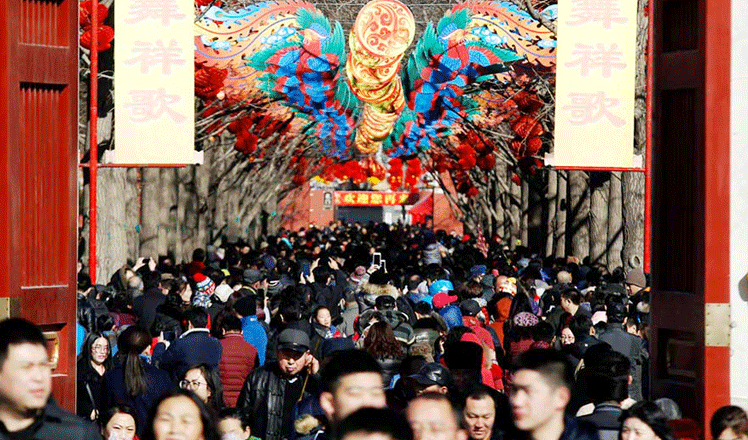Xinjiang to ban tourists to glaciers
Updated: 2016-02-11 21:03
(Xinhua)
|
||||||||
URUMQI -- Tourists have been forbidden from entering glaciers in Northwest China's Xinjiang Uygur autonomous region, authorities said on Thursday.
"Glacier tourism brought in revenue of less than one billion yuan ($152 million) over the past dozen years, but the loss from shrinking glaciers is incalculable," said Li Jidong from the regional tourism administration.
According to the new regulation, tourists are only allowed to enjoy the sight of glaciers from a distance instead of walking on them.
Statistics showed the temperature of the region has risen 0.33 degrees Celsius to 0.39 degrees Celsius per decade over the past 50 years, almost three times the global average.
China has 46,377 glaciers, with 18,311, or 46.8 percent of the national ice reserves located in Xinjiang. Global warming, grazing, mining and tourism have accelerated destruction of the glaciers, and led to water shortages in several areas.
Glacier meltwater accounts for about 25 to 30 percent of Xinjiang's surface run-off, and the thawing of the glaciers could have a disastrous effect on the region, according to the Tianshan Mountains Glacier Observation Station under the Chinese Academy of Sciences (CAS).
Approximately 120 km from the regional capital of Urumqi, Glacier No. 1 in the Tianshan Mountains is the closest glacier to a city in the world. The meltwater from the glacier has reduced after years of receding.
Small glaciers at low altitudes are more sensitive to climate change, said Chen Xi from the CAS.
"Glaciers in the Tianshan Mountains have receded by 15 to 30 percent in the last three decades." Chen said. "And they will continue to retreat by 60 percent in the next 20 years, and by 80 to 90 percent half a century from today."
To protect the city's water supply, Urumqi banned tourists from the glacier back in 2006, but visitors manage to find their way into the area.
More than a dozen families of herdsmen still inhabit the area and to make money, some herdsmen take tourists to the area by motorcycle.
A recent visit by Xinhua reporters found plastic waste scattered in many areas, indicating visits made by tourists.
All mining has ceased in a 948-sq-km protection zone. Vehicles on section of national highway near the zone are restricted and wild herb digging is banned.
Xinjiang has called for other countries and regions along the Tianshan Mountains to stop glacier tourism as well.
- General strike against pension reform brings Greece to standstill
- Madrid airport sounds alarm after bomb threat on Saudi plane
- Obama proposes new oil tax to fund clean transportation
- UN special envoy announces temporary pause of intra-Syrian talks
- Taliban kill 10-year-old hailed as militia hero
- Obama slams anti-Muslim rhetoric during first visit to US mosque

 Spectacular Harbin snow sculptures draw holidaygoers
Spectacular Harbin snow sculptures draw holidaygoers
 All you need to know about China's Spring Festival temple fairs
All you need to know about China's Spring Festival temple fairs
 Special souvenirs
Special souvenirs
 Opening bell on Chinese New Year's Day
Opening bell on Chinese New Year's Day
 The world celebrates Spring Festival with China
The world celebrates Spring Festival with China
 Ditan Park temple fair embraces Chinese New Year
Ditan Park temple fair embraces Chinese New Year
 Xi Jinping grieves over Taiwan quake, vows aid
Xi Jinping grieves over Taiwan quake, vows aid
 Flash mob in monkey costumes appears in NYC to mark Chinese New Year
Flash mob in monkey costumes appears in NYC to mark Chinese New Year
Most Viewed
Editor's Picks

|

|

|

|

|

|
Today's Top News
National Art Museum showing 400 puppets in new exhibition
Finest Chinese porcelains expected to fetch over $28 million
Monkey portraits by Chinese ink painting masters
Beijing's movie fans in for new experience
Obama to deliver final State of the Union speech
Shooting rampage at US social services agency leaves 14 dead
Chinese bargain hunters are changing the retail game
Chinese president arrives in Turkey for G20 summit
US Weekly

|

|







